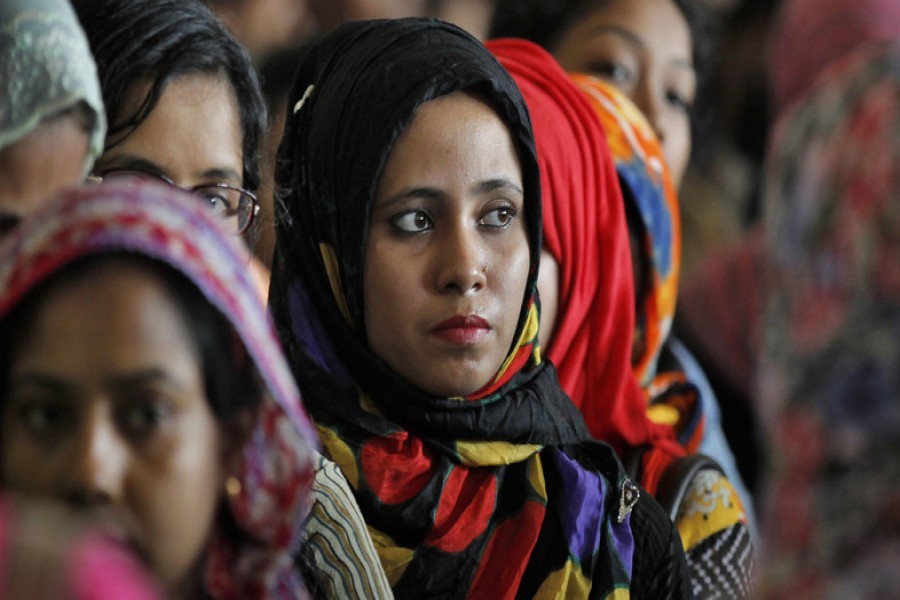The news of a remarkable increase in the number of migrant female workers in different countries, especially in the Middle East, is undoubtedly propitious. It bodes well for female employment, as an FE report has shown, that a total of 67,127 female workers went to different countries in the Jan-July period of 2022 against 37,417 in the same period of 2021. It shows a 79.40 per cent growth in the sector. The news comes against the backdrop of periodic returns of female Bangladeshi workers from the ME alleging persecution of different kinds during their work periods. According to the report, Bangladesh sent female workers to 21 countries in the period under review. The highest number of workers --- 42,647 or about 63 per cent, was taken by the Kingdom of Saudi Arabia, followed by Oman (11, 739), Jordan, Qatar, and the United Arab Emirates (1,063).
As domestic helps in a country different from Bangladesh socially and culturally, except religious similarity, women have experiences different from those of the male workers. Women workers from Bangladesh have the opportunity to get exposed to many inside views of the families they work for. Many houses, thus, prove quite caring and sympathetic. Some are however exploitative and the cases of sexual abuse have emerged as a cause for concern. Overwork, less payment than promised, physical torture for mistakes etc have also compelled workers to flee the houses they worked for. Moreover, the corona outbreak led to a sudden drop in the number of female domestic helps in the countries receiving them. It was only in the post-pandemic phase in 2021, that the number of female Bangladeshis started growing.
Manpower export observers, have, however, long been stressing the imperative of properly grooming up migrant female workers. According to them, the onus lies on the Bureau of Manpower Employment and Training (BMET). In its proposal, the BMET cannot help singling out the requirement for primary fluency in Arabic, the language of almost all the female worker-importing countries. The Bangladeshi job-seekers ought to be extensively briefed about the Middle Eastern countries' domestic and neighbourhood environment as well as their possible workload. These countries aren't on a par with each other. Despite being inhabitants of the Arabic speaking West Asia, they are concentrated in the Gulf countries including Saudi Arabia. All these countries have their own and distinct cultures. The Bangladeshi female job-seekers need to be familiarised at least with the basic domestic culture before they gradually come to know in some details while in employment. Besides, the female domestic workers going abroad should have at the least junior level school education.
Last but not least, in the past years women trafficking syndicates played a great role in the whole process of sending women to the ME countries. Thanks to the government's enforcement of stringent rules, women workers eventually learned how to ensure that they are safe while abroad. It is, undoubtedly, a major development set to brighten the image of Bangladesh and take the hapless, poverty-stricken women out of the morass of misfortune.


